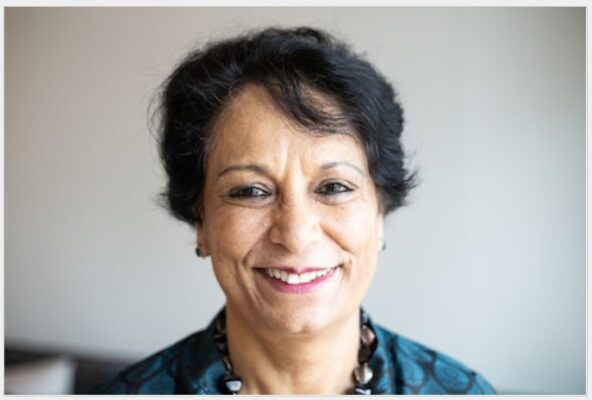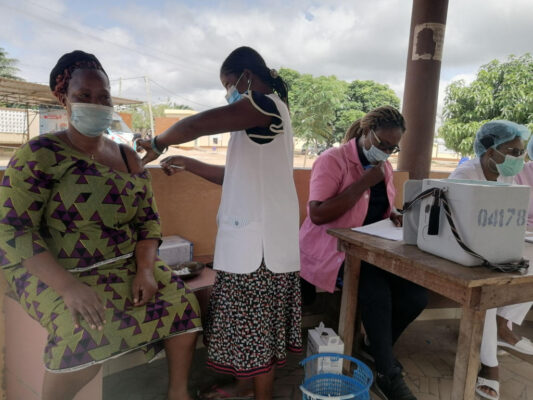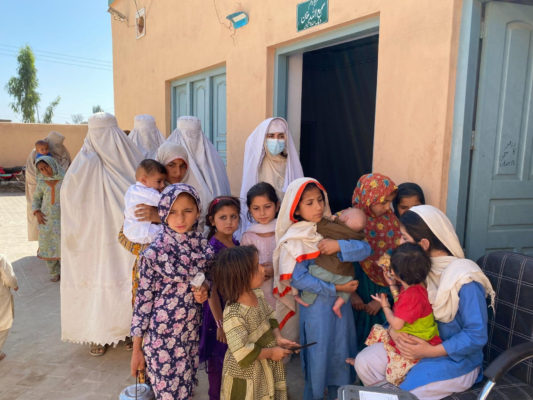GAVI, the vaccine alliance, says an additional 3 million children worldwide missed out on all vaccines in 2020. The alliance helps vaccinate almost half of the world’s children against deadly and debilitating infectious diseases. This includes vulnerable populations affected by conflict and natural disaster.
Speaking during World Immunization Week – for which the tagline is ‘Long Life for All’ – Anuradha Gupta told Vaccines Today that Gavi is now ‘laser focused’ on reaching the millions of ‘zero dose’ children left behind. ‘Inequitable access to immunisation is a matter of life or death,’ she said.
Read the full interview below

How concerned are you that the COVID-19 pandemic has further increased the number of children who have never received any routine immunisations?
Very concerned. Although declines in routine immunisation have not been as severe as initially feared, in 2020 the number of children who missed out on receiving even a single vaccine shot increased by 3 million [from 10.6m in 2019 to 13.7m in 2020] in Gavi-supported countries. These “zero-dose” children, and the communities they live in, often face multiple deprivations – so inequitable access to immunisation is a matter of life or death.
What is Gavi doing to get routine immunisation back on track?
Gavi is committed to bringing a laser focus on reaching the nearly 14 million zero-dose children in Gavi-supported countries with life-saving vaccines. These children account for a disproportionate burden of child deaths – nearly half of all children dying from vaccine preventable diseases. To reach them, Gavi is supporting differentiated and targeted approaches to respond to specific needs of communities, with an emphasis on localised solutions and partnerships. In a historic decision, the Gavi Board has also approved US$ 500 million to sustainably reach these zero-dose children, including populations in fragile, conflict and cross-border settings outside government reach.

Do you believe the global focus on COVID-19 vaccines over the past 18 months has made it easier to build vaccine demand?
The pandemic has enshrined in the global consciousness the centrality of vaccines to protecting lives, livelihoods, economies and social stability. But along with this unprecedented focus has come unprecedented misinformation, vaccine hesitancy and erosion of public trust. Addressing these challenges requires a deeper understanding at the community level – only if we understand how people think, feel and act in relation to vaccination can we design approaches to address their concerns and ensure high community uptake.
Are there ways in which it poses new challenges for routine immunisation campaigns given the politicisation and polarisation of immunisation seen in some countries?
Demand for immunisation is ultimately about trust. For instance, child vaccination rates in Africa are lower in areas where the local population displays high levels of mistrust towards local authorities. Therefore, there is a real risk that politicisation and polarisation in relation to COVID-19 vaccines will impact demand for routine immunisation, with devastating consequences. It is imperative that immunisation services are driven by authentic political commitment, with equity and transparency at the core.

How can engaging with communities help to build trust in vaccination?
For people to demand essential health services, such as vaccines, as a basic right, trust and ownership must flourish in their communities. In Togo, Gavi is supporting engagement with prefects, mayors, village chiefs, civil society organisations (CSOs), and religious and community leaders to address COVID-19 vaccine misinformation. In specific parts of Pakistan, Gavi is supporting women representatives to provide a bridge between the community and the health system to help address barriers, especially gender-related barriers, to immunisation.
Is there a role for Gavi in supporting people in Ukraine, and those who have been displaced, to ensure vaccination rates are maintained/improved?
Absolutely. Through the Gavi COVAX AMC, Ukraine has received more than 8 million COVID-19 vaccine doses. While Ukraine transitioned out of Gavi support for routine immunisation back in 2008, we are actively monitoring the situation, and we stand ready to support Ukrainians however we can, within our mandate – for example, by supplying doses to Ukraine or to neighbouring countries serving Ukrainian refugees.




